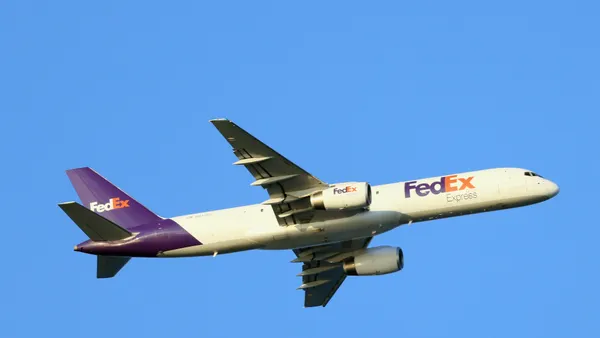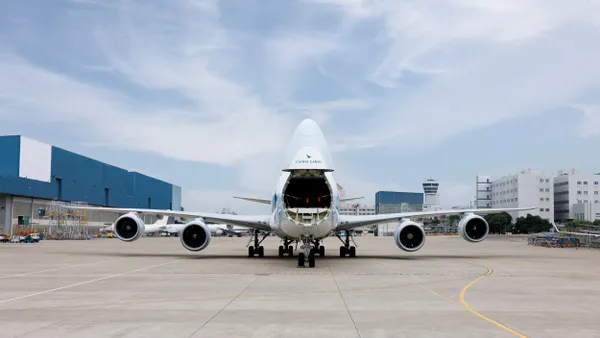Dive Brief:
- A consortium of companies led by humanitarian aid organization Direct Relief announced on July 10 that it had completed a proof of concept pilot for transporting temperature-sensitive vaccines to remote locations via an unmanned aerial vehicle (UAV), according to a press release. The other firms involved include AT&T, Merck, Softbox (a temperature-controlled packaging maker) and UAV manufacturer Volans-i.
- According to a video provided to Supply Chain Dive, the drone transported Merck vaccines over 24 miles of open water between islands in the Bahamas and was monitored remotely using IoT sensors and cold-chain visibility technology provided by AT&T.
- The drone was able to keep the vaccines at an optimum temperature of minus 70 degrees Celsius in a payload container specially designed by Softbox. As it flew, operators on the ground used real-time IoT data from the drone's sensors to monitor the conditions of the vaccines and external factors like climate and terrain.
Dive Insight:
The group hopes UAVs could become a more viable option for delivering life-saving drugs to remote or disaster-stricken locations that are cut off from traditional modes of transportation.
"More remains to be done to operationalize medical cargo drones in emergencies. But successful tests like this one demonstrate that remarkable new humanitarian capabilities are emerging quickly," said Andrew Schroeder, who leads data visualization and geospatial analytics for Direct Relief said in a press release.
Currently, the primary operational challenge cited in the release is working with flight regulations that vary from country to country or even city to city. There are many restrictions regarding flying UAVs over government lands, highly populated areas etc. Additional regulations regarding take-off and landing permissions, as well as drone size, range and payload can make drone operations difficult to achieve at scale.
However, as flight range, remote monitoring and cold-storage technology for UAVs continue to improve, other supply chains are experimenting with drone delivery for medical purposes as well. Earlier this year, UPS launched a new logistics service using UAVs to deliver medical samples across WakeMed's campus near Raleigh, North Carolina. The drone, manufactured by Matternet, has a range of 12.5 miles and can carry payloads of up to five pounds, creating a faster on-demand service for workers than the courier cars they were relying on previously.
In the Direct Relief pilot's case, the group has ambitions to continue testing in other, more difficult to reach locations. The group plans to run tests in Africa and Latin America in the near future, according to the release.














